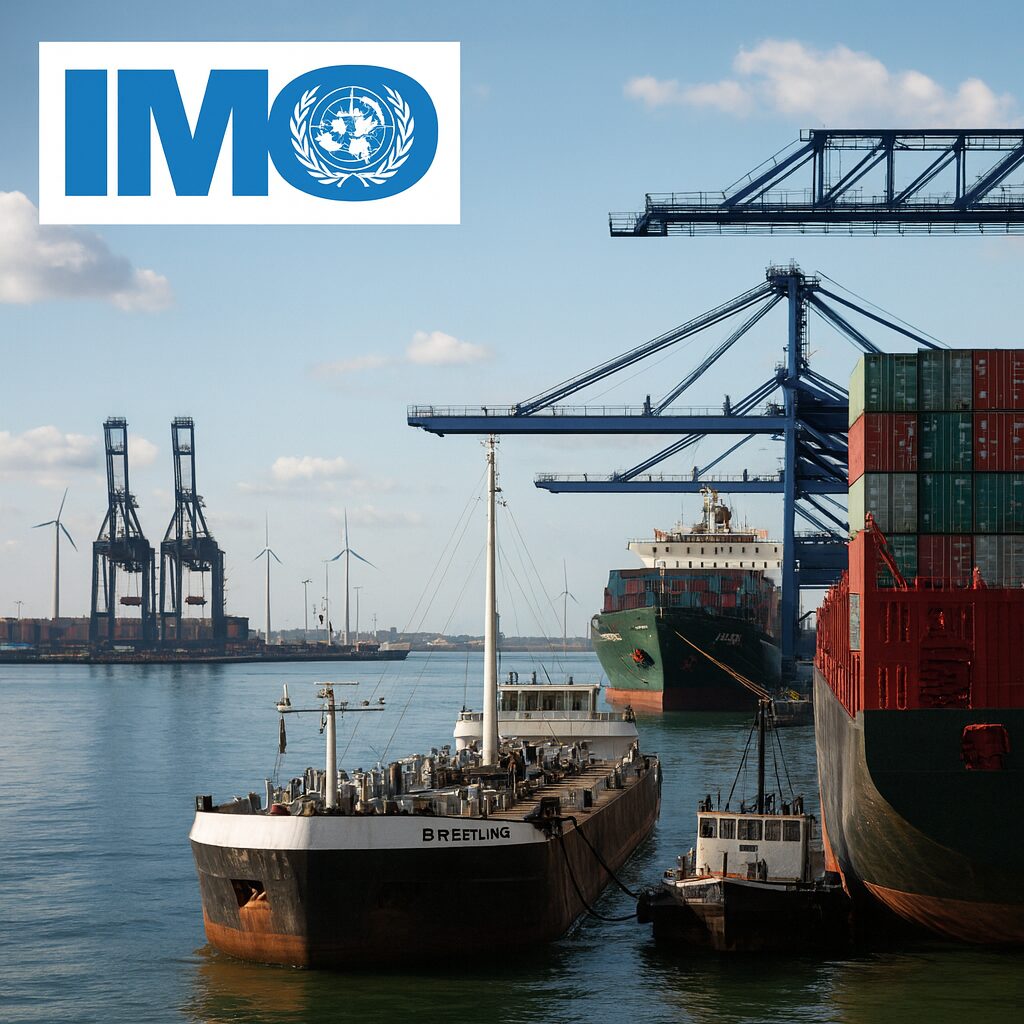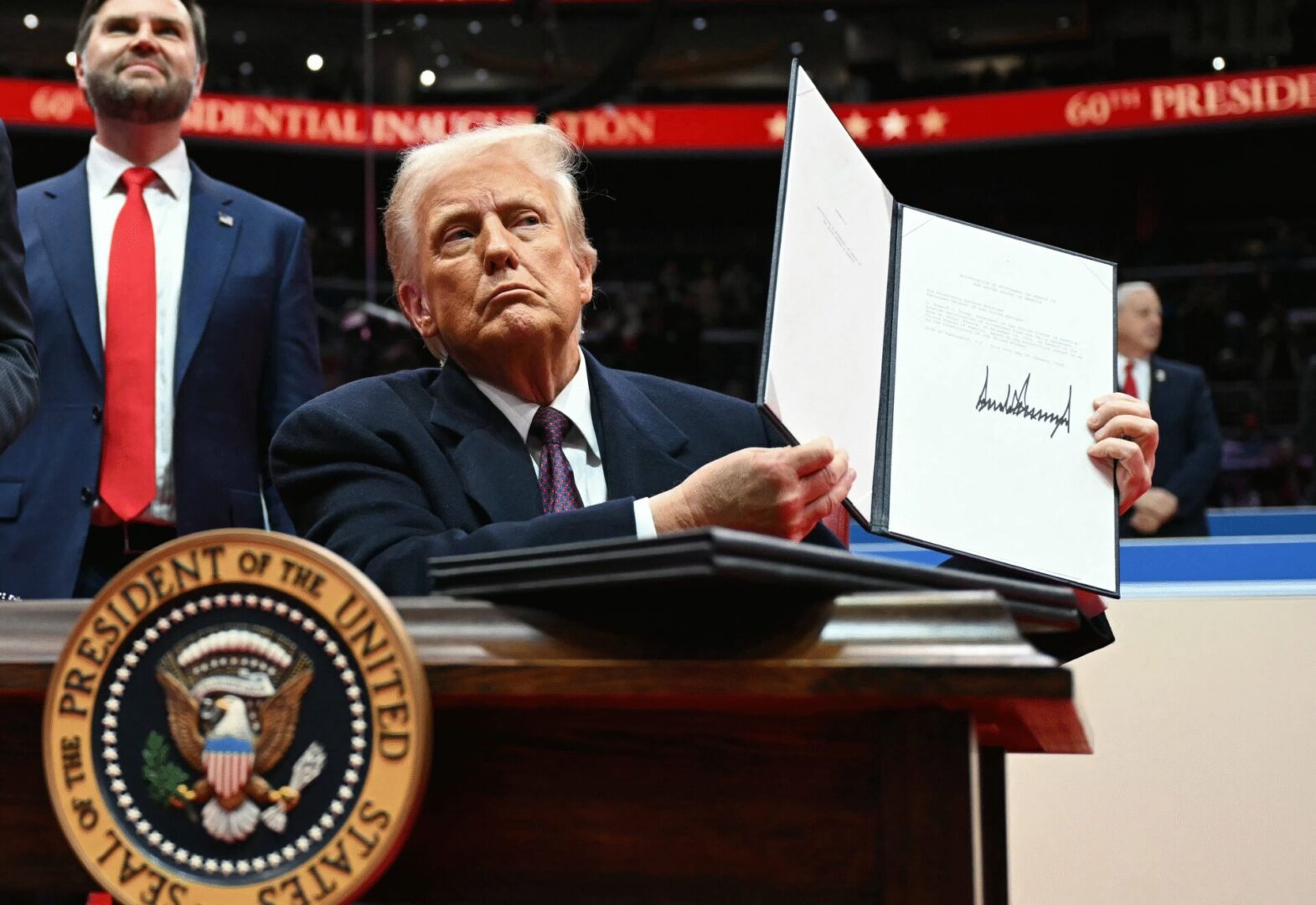The U.S. Bullying the Caribbean Over the IMO’s Net-Zero Framework
Jamaica Live News Desk– | Oct 14, 2025
America’s “Warning” or Economic Blackmail?
The United States has once again revealed its double standard on global climate policy. In October 2025, Washington issued an alarming “warning” to member countries of the International Maritime Organization (IMO)—including those in the Caribbean—not to vote for the Net-Zero Framework (NZF), a plan designed to cut emissions from the global shipping industry. The U.S. called the plan a “global carbon tax” and threatened punishment—sanctions, visa restrictions, and port bans—against any country that supports it.
The Net-Zero Framework (NZF) is a global climate plan proposed by the International Maritime Organization (IMO) to make the shipping industry carbon-neutral by 2050. It introduces a global fuel standard to limit emissions from large ships and a carbon pricing system requiring polluters to pay based on how much greenhouse gas they emit. The funds would support clean-energy projects and climate adaptation, especially in vulnerable island nations. While countries like China, Japan, and those in Europe support it, the U.S. opposes the framework, calling it a “global carbon tax” that could raise costs and hurt American energy interests — a move that many see as prioritizing profit over the planet.

Let’s call it what it is: economic blackmail disguised as diplomacy. The same America that lectures small island states about reducing emissions and protecting the planet now threatens them for supporting an international plan to do exactly that.
For Caribbean nations, this is not an abstract policy debate—it’s a fight for survival. Rising seas, coral bleaching, and hurricane devastation are already dismantling economies and displacing communities. The shipping industry, responsible for nearly 3% of global emissions, is a major part of the problem. Additionally, Risk of oil spills: A 2015 study found that approximately 83% of the Caribbean Sea was at risk from potential oil spills due to shipping activities, highlighting another environmental risk from maritime traffic.
The NZF would have required large vessels—those over 5,000 gross tonnage—to meet strict greenhouse gas (GHG) limits and pay for their emissions. This global mechanism could help fund cleaner technologies and adaptation efforts in vulnerable regions like ours.
Oil spills remain one of the most pressing environmental threats to Caribbean waters. According to a 2022 Jamaica Observer report citing the Group of Experts on the Scientific Aspects of Marine Environmental Protection (GESAMP), an estimated 250 oil spills occur annually in the Gulf of Mexico and the Caribbean Sea. The region has already witnessed catastrophe — the world’s largest tanker spill occurred off Trinidad and Tobago in 1979, when two vessels collided, releasing 287,000 tonnes of crude oil into the sea. Industry experts estimate that a medium to large oil spill could cost between US$2.4 billion and US$9.4 billion, covering cleanup, compensation, and damage to agriculture, fisheries, and wildlife.
In Jamaica, the Government has established a National Oil Spill Contingency Plan to ensure readiness, following the Petrojam refinery fire in November 2000, which caused an estimated J$45 million in losses. Similar contingency frameworks exist in Barbados, Trinidad and Tobago, and Guyana, but these emergency reserves place additional strain on already limited national budgets, underscoring the need for stronger international accountability and preventive measures.
By threatening to punish small Caribbean nations for supporting climate accountability, the U.S. is effectively telling the victims of climate change to stay silent or suffer economically.
The U.S. argument that the NZF would “harm American citizens and shipping companies” hides a deeper truth: this is about protecting U.S. fossil fuel interests. The framework would have placed pressure on U.S.-backed liquefied natural gas (LNG) and biofuel industries—sectors heavily funded by American corporations and political donors.
Ironically, Washington accuses the plan of “benefiting China and Europe,” but the real beneficiaries of U.S. obstructionism are the oil and gas giants that continue to profit from the climate crisis.
Under the Biden administration (2021–2025), the United States supported international climate cooperation and reaffirmed its commitment to the Paris Agreement and a net-zero emissions goal by 2050.
However, on January 20, 2025, President Donald Trump reversed course by signing Executive Order 14162, titled “Putting America First In International Environmental Agreements,” which directed the U.S. Ambassador to the UN to withdraw the country from the Paris Agreement and terminate related climate commitments. The current Trump administration (2025– ) therefore rejects both the Paris Agreement and the Net-Zero Framework, signaling a return to climate isolationism and fossil fuel protectionism.

It’s the same pattern seen at COP meetings—grand speeches about shared responsibility, followed by backroom deals that protect U.S. economic dominance. The threat to sanction small nations for voting their conscience is not just undemocratic—it’s neo-imperial.
The Caribbean must respond to America’s constant policy flip-flops with unity, resilience, and independence. Regional countries should stand together through CARICOM to present a consistent voice on climate issues, anchor their own environmental goals in national and regional law, and diversify alliances beyond the U.S., partnering more with Europe, China, Africa, and Pacific nations.
By strengthening climate diplomacy, investing in green infrastructure, and building local expertise, the Caribbean can protect its survival and development regardless of which U.S. administration is in power or how Washington shifts its climate stance.
Caribbean nations must stand firm. Our economies already pay the price of global warming through floods, storms, and rising insurance costs. We cannot allow our environmental future to be dictated by threats from Washington.
If the U.S. wishes to isolate itself from a global consensus on maritime decarbonization, so be it. The Caribbean must side with progress, sustainability, and survival—not with hypocrisy and fossil-fuel politics.
The Net-Zero Framework is far from perfect, but it represents a collective effort to make international shipping accountable. By rejecting it and bullying smaller nations, the U.S. has chosen greed over global good.
For a region like the Caribbean—already at the mercy of rising tides and stronger hurricanes—this is not just political. It’s existential.
